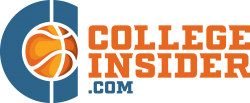Balancing Athletics and Academics for College Student-Athletes
As a student-athlete in college, you must walk a tightrope. You must be disciplined, organized, and determined. Balancing your academic and athletic lives takes work. This article will discuss ideas to help you achieve this balance while performing well in the classroom and the field.
Establish Clear Priorities
Pursuing college sports success while succeeding in the classroom requires student-athletes and their parents and advisers to establish clear priorities early on and adjust them over time. More plainly, it involves appreciating that each is important but requires different emphases at different times. For instance, athletic toil might be called for during a season-training, games, rehab-but that doesn't mean bowing out academically. Conversely, off-season stretches might be a prime time for extra cramming. However, many student-athletes excel because they employ a prioritized orientation to their time and energy. Above all, they do so in a way that helps avoid feelings of burnout while maintaining productivity in both spheres.
Student-athletes use professional writing services to balance their academic and athletic commitments. You can get college papers written for you by expert authors. Customized academic support can be instrumental during peak sports seasons when time is limited. It will allow you to focus on your studies and sports without the overwhelming stress.
Develop a Structured Schedule
A structured schedule is one of the keys to finding the balance between sports and school for student-athletes. Below is a list of four essential elements to include:
- Advance Planning: Remember to plan your weekly activities (e.g., class schedules, practices, games, etc.).
- Dedicated Study Blocks: Carve out study times, especially during downtime between practice or when traveling on the road for games.
- Rest Periods: Add needed rest phases to prevent burnout and maintain physical and mental health.
- Use of Digial Tools: To be efficient, keep track of all activities and deadlines on a digital calendar or planner app.
With hard work, dedication, and diligence, a schedule that satisfies one's academic commitments while still allowing time for athletic pursuits can be constructed. Indeed, with measures put in place to prepare for more intensive spells such as exam seasons or important tournaments, momentum can be kept up throughout the year.
Utilize Available Resources
The truth is that nearly every college and university offers such usage, as well as tutoring and study hours. Talking with your coaches and professors about your schedule helps, too: they can help you get a lenient schedule or figure out how to make it work. If you take the time to use these resources, you can reduce stress by making sports and studies work for you. The people on campus want you to be accommodated and supported - they know how hard being a student-athlete is. Another great resource is academic support offered by expert services. With so many platforms available, finding a reliable service provider may be daunting. Here, you can learn more about the writing service that is worth your trust. It offers tailored support that aligns with your academic goals and schedules.
Stay Healthy and Avoid Burnout
Balance is critical to maintaining physical and mental health and essential to all student-athletes' well-being. Proper nutrition, sufficient sleep, and frequent mental health check-ins are vital to prevent becoming unbalanced. Unmanaged stress can lead to burnout, and there are various ways to manage stress through activities like mindfulness or yoga, which you can incorporate into your daily schedule. Additionally, it can be helpful to regularly meet with a counselor or therapist to gain strategies for dealing with the pressures of being a student-athlete and living up to the role that others sometimes impose.
Build a Supportive Network
Experts agree that social support is essential, from teammates who know what it’s like to play through exhaustion, classmates working their way through similar academic programs, and familial support who provide emotional support. Family and friends, academic advisors, and coaches who’ve “walked a mile in your shoes” are all vitally essential mentors in dispensing advice and providing support. A support network can help in tough times, cheer you on in good times, and celebrate academic and athletic successes.
Crossing the Finish Line: Thriving as a Student-Athlete
Although the demands of being a college student-athlete can make managing multiple commitments seem daunting, it is indeed doable with the right approach and resources. Individuals can meet their potential in sports and academia with clear priorities, careful time-budget management, utilization of campus and other external resources, maintaining personal health, and fostering positive relationships and support systems. It’s not about surviving college but thriving during those years, emerging well-prepared for the road ahead in adulthood for the long term.


